第28章 CHAPTER XV(1)
The Face of the Country;its Productions,Climate,&c.
To the geographical knowledge of this country,supplied by Captain Cook,and Captain Furneaux,we are able to add nothing.The latter explored the coast from Van Diemen's land to the latitude of 39deg south;and Cook from Point Hicks,which lies in 37deg 58min,to Endeavour Streights.
The intermediate space between the end of Furneaux's discovery and Point Hicks,is,therefore,the only part of the south-east coast unknown,and it so happened on our passage thither,owing to the weather,which forbade any part of the ships engaging with the shore,that we are unable to pronounce whether,or not,a streight intersects the continent hereabouts:though I beg leave to say,that I have been informed by a naval friend,that when the fleet was off this part of the coast,a strong set-off shore was plainly felt.
At the distance of 60miles inland,a prodigious chain of lofty mountains runs nearly in a north and south direction,further than the eye can trace them.Should nothing intervene to prevent it,the Governor intends,shortly,to explore their summits:and,I think there can be little doubt,that his curiosity will not go unrewarded.If large rivers do exist in the country,which some of us are almost sceptical enough to doubt,their sources must arise amidst these hills;and the direction they run in,for a considerable distance,must be either due north,or due south.
For it is strikingly singular that three such noble harbours as Botany Bay,Port Jackson,and Broken Bay,alike end in shallows and swamps,filled with mangroves.
The general face of the country is certainly pleasing,being diversified with gentle ascents,and little winding vallies,covered for the most part with large spreading trees,which afford a succession of leaves in all seasons.
In those places where trees are scarce,a variety of flowering shrubs abound,most of them entirely new to an European,and surpassing in beauty,fragrance,and number,all I ever saw in an uncultivated state:among these,a tall shrub,bearing an elegant white flower,which smells like English May,is particularly delightful,and perfumes the air around to a great distance.
The species of trees are few,and,I am concerned to add,the wood universally of so bad a grain,as almost to preclude a possibility of using it:
the increase of labour occasioned by this in our buildings has been such,as nearly to exceed belief.These trees yield a profusion of thick red gum (not unlike the 'sanguis draconis')which is found serviceable in medicine,particularly in dysenteric complaints,where it has sometimes succeeded,when all other preparations have failed.To blunt its acrid qualities,it is usual to combine it with opiates.
The nature of the soil is various.That immediately round Sydney Cove is sandy,with here and there a stratum of clay.From the sand we have yet been able to draw very little;but there seems no reason to doubt,that many large tracts of land around us will bring to perfection whatever shall be sown in them.To give this matter a fair trial,some practical farmers capable of such an undertaking should be sent out;for the spots we have chosen for experiments in agriculture,in which we can scarce be supposed adepts,have hitherto but ill repaid our toil,which may be imputable to our having chosen such as are unfavourable for our purpose.
Except from the size of the trees,the difficulties of clearing the land are not numerous,underwood being rarely found,though the country is not absolutely without it.Of the natural meadows which Mr.Cook mentions near Botany Bay,we can give no account;none such exist about Port Jackson.
Grass,however,grows in every place but the swamps with the greatest vigour and luxuriancy,though it is not of the finest quality,and is found to agree better with horses and cows than sheep.A few wild fruits are sometimes procured,among which is the small purple apple mentioned by Cook,and a fruit which has the appearance of a grape,though in taste more like a green gooseberry,being excessively sour:probably were it meliorated by cultivation,it would become more palatable.
Fresh water,as I have said before,is found but in inconsiderable quantities.
For the common purposes of life there is generally enough;but we know of no stream in the country capable of turning a mill:and the remark made by Mr.Anderson,of the dryness of the country round Adventure Bay,extends without exception to every part of it which we have penetrated.
Previous to leaving England I remember to have frequently heard it asserted,that the discovery of mines was one of the secondary objects of the expedition.
Perhaps there are mines;but as no person competent to form a decision is to be found among us,I wish no one to adopt an idea,that I mean to impress him with such a belief,when I state,that individuals,whose judgements are not despicable,are willing to think favourably of this conjecture,from specimens of ore seen in many of the stones picked up here.I cannot quit this subject without regretting,that some one capable of throwing a better light on it,is not in the colony.Nor can I help being equally concerned,that an experienced botanist was not sent out,for the purpose of collecting and describing the rare and beautiful plants with which the country abounds.Indeed,we flattered ourselves,when at the Cape of Good Hope,that Mason,the King's botanical gardener,who was employed there in collecting for the royal nursery at Kew,would have joined us,but it seems his orders and engagements prevented him from quitting that beaten track,to enter on this scene of novelty and variety.